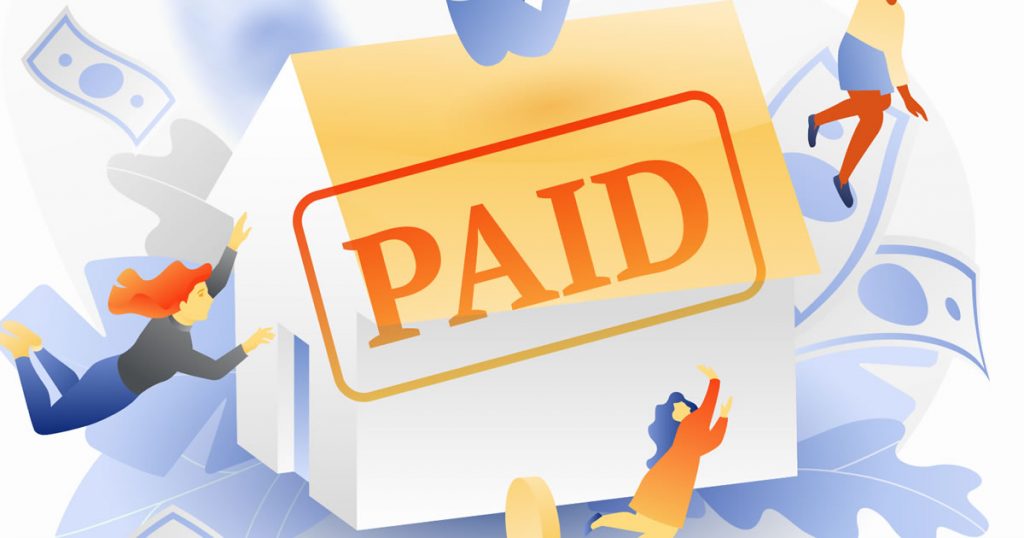
The day you turn 59 and a half, your 401(k), IRA, or Roth IRA become open for business in most circumstances. (Note: You may not be able to fully access a 401(k) plan from a company if you are still working.) You can now withdraw as much as you like and start living your retirement dream. You might be looking at that nice big balance you’ve spent a lifetime saving and that ugly mortgage balance you’ve still got on the books. Is it a smart idea to go ahead and pay off your house after you retire and get rid of one of your biggest expenses?
Crunching the Numbers
Paying off your mortgage with retirement funds would definitely feel good, but it’s important to do the math to figure out if this is really the smart thing for you to do financially.
First, compare the interest rate on your mortgage versus what you can make on your retirement savings if it stayed invested. Maybe your mortgage interest rate is 5%, while your investment makes an average of 7% each year. In this scenario, you’ll have more money in the long run if you keep your retirement savings exactly where they are! And don’t forget that you’ll have to take out even more than the mortgage balance you want to pay off, because you’ll have to pay taxes on those withdrawals as well.
Other Debt to Pay
It’s also worth considering if your retirement funds might be better used paying other types of debt. For example, credit card interest rates average 12% to 22%. If you’ve got a significant amount of credit card debt, it could be smarter to pay it off with your retirement savings, especially if your savings are only generating 7% return. But it still may not be a good idea when you think about the income taxes you’ll have to pay on the funds you withdraw from retirement.
Consider the Long Game
When thinking about paying off your home, it’s important to consider the long game. Don’t forget that the point of your retirement savings is to cover your expenses throughout your entire retirement. Even if you could pay off your full mortgage, is it worth it if you cut your retirement savings in half? What happens in five or ten years when your account runs out of money, especially since you’ll lose the money you would have earned on that money?
Is It Ever Okay to Pay Off Your Mortgage with Retirement Savings?
Every situation is different. If you’re only $10,000 away from paying off your mortgage and your retirement account is well-stocked, then it probably isn’t a big deal to cut a check and get rid of your mortgage forever, especially if you plan on staying in your home for the foreseeable future.
In many other cases, paying off your mortgage might not be the best financial decision. It should go without saying that it is almost never a good idea to try and pay off your mortgage with your retirement savings if you aren’t at least 59 and a half years old. Not only do you have to contend with all the issues already listed in this article, but you’ll also pay hefty fees for early withdrawal. There are very few scenarios where that would be a good decision.
It’s a good idea to speak with your financial advisor before making any large withdrawals from your retirement account or committing to paying off your mortgage with your retirement savings.
Need help saving for retirement or being a good financial steward in your retirement years? Consider starting a Money Club with your friends.
Keep Reading

Hi Ginita,
You gave me amazing advice about capitol gains a few years ago. My husband died 2 and a half years ago. We had sold our home and bought a new one 11wks before he died. He died by suicide, and I couldn’t stay in that house. So I sold it, hence my questions to you a few years ago about capitol gains. I have been living with one of my sons since then, but am feeling ready to find my own space. With the market as it is, should I purchase another small house or should I just rent!?? I have about 700,000 cash plus a $250,000 annuity. My husbands pension will be about $850 a month ( he would have been 65 October 2023 ) social security and and small amount still in a 401k…$14,000. I am 59 1/2 and still working part time hours bringing home about $600 a week and plan to continue working for the foreseeable future. No outstanding debt. I don’t know which path is the best financial choice. What are your thoughts? I cannot tell you how much your advice is appreciated. Thank you so much!
It’s great to own your own home, as you know, but it does take money to buy it and keep it up. Compare the costs of owning with the costs of renting to see which is the best deal for you at this time. If you buy, and later on you don’t have the energy to keep it up or need the equity from the house to live on, you certainly can sell it then. It’s also important to calculated your needs in retirement, and compare that to what retirement income you’ll have from social security, the pension and your annuity, to see if you’ll be able to cover expenses. If not, then you’ll need to keep some of those funds available to dig into to cover your retirement expenses.